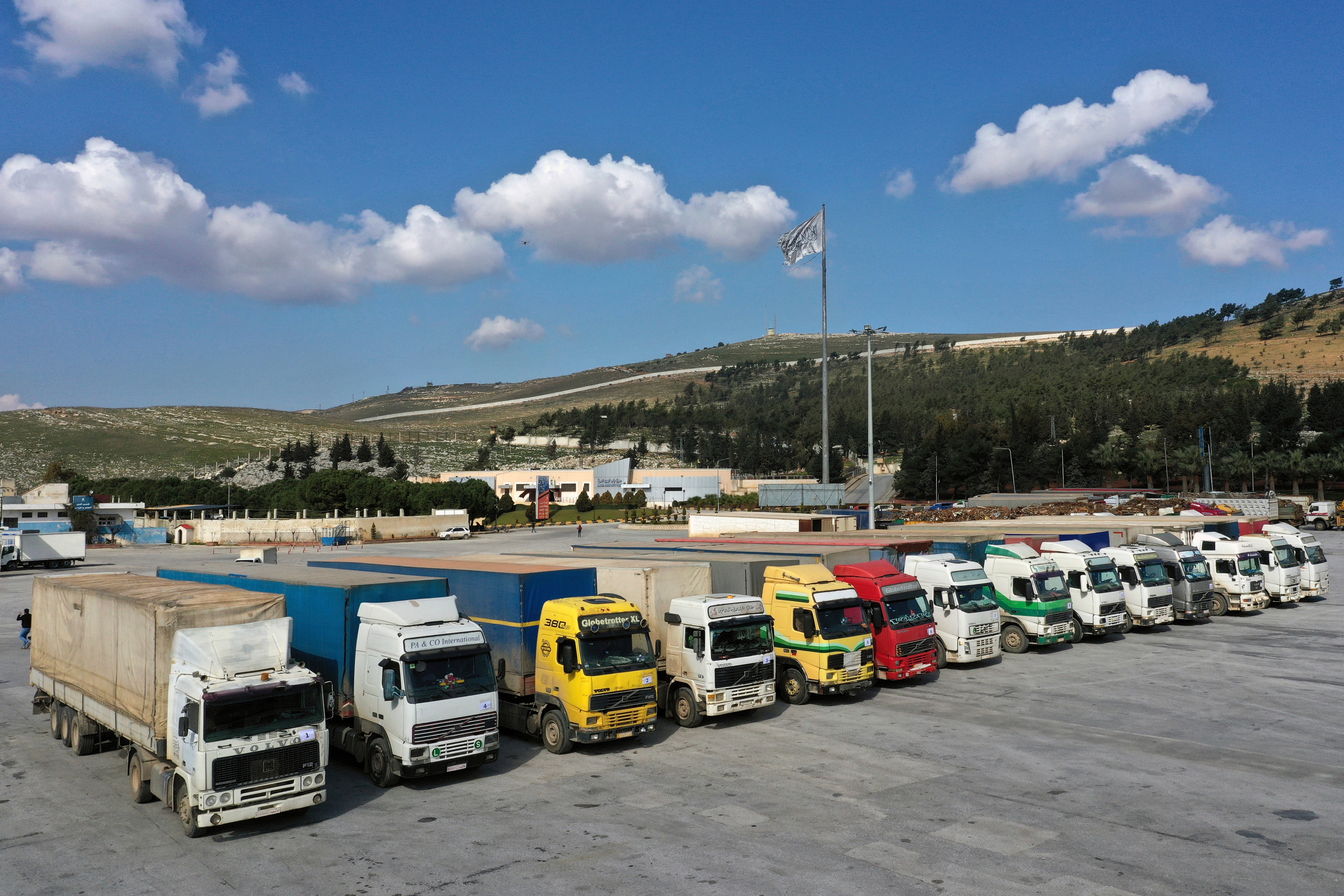UN aid enters Syrian rebel enclave from government territory in first such crossing since earthquake
A convoy carrying U.N. aid has entered Syria's last rebel-held enclave from government-held territory, the first such shipment to cross battle lines since February's deadly 7.8-magnitude earthquake that hit Turkey and Syria

A convoy carrying U.N. aid entered Syria’s last rebel-held enclave from government-held territory on Friday, the first such shipment to cross battle lines since February’s deadly 7.8-magnitude earthquake that hit Turkey and Syria.
The convoy with humanitarian supplies crossed from a government-controlled area in the province of Aleppo, and entered Idlib, according to the U.N. office for humanitarian affairs or OCHA. The last aid shipment to cross the front lines in the conflict was in early January.
After the February earthquake that struck Turkey and northern Syria, causing widespread destruction, convoys have been prevented from entering the province of Idlib from government-held areas by the al-Qaida-affiliated militant group Hayat Tahrir al-Sham, which dominates the area.
The group has sought to distance itself from al-Qaida in recent years. After the Feb. 6 quake, an administrative arm of the group accused the government of Syrian President Bashar Assad of trying “to benefit from the aid intended for victims of the earthquake.”
In the wake of the earthquake, aid deliveries to affected areas became a political battleground, with Assad's opponents and many aid organizations pushing for the United Nations to send more aid shipments to northern Syria by way of Turkey. Meanwhile, the Syrian government and its ally, Russia, pushed for the aid to be sent via Damascus.
The U.N. is usually only allowed to deliver aid through a single border crossing from Turkey, at Bab al-Hawa, at the insistence of Russia, which is a permanent member of the United Nations Security Council.
After the earthquake, Assad agreed to the opening of two new crossing points from Turkey, at Bab al-Salam and al-Raee on a temporary basis. In practice however, most of the cross-border aid continued to come via Bab al-Hawa. The mandate for cross-border aid deliveries at Bab al-Hawa is up for renewal next month at the Security Council.
Representatives of Hayat Tahrir al-Sham have declined to comment on the reasons for their change in stance on aid coming from government-held areas. But Sam Heller, a fellow with the New York-based Century International research center, said the group’s decision may be related to next month's vote at the U.N.
He said Russia’s U.N. envoy has complained about the lack of cross-line deliveries, and allowing one now may have been intended to encourage Moscow to approve the continuation of cross-border aid.
"The cross-border mandate will only be renewed with Russia’s consent," he said.
Syria Response Coordination Group, a humanitarian organization working in northwest Syria, said in a statement that “humanitarian convoys have been at the mercy of international political tensions” and called for international organizations to find ways to increase the amount of assistance reaching the area.
___
Sewell reported from Beirut.